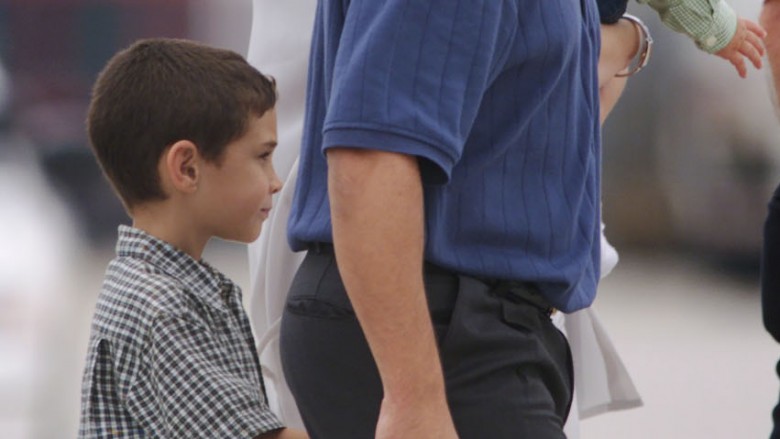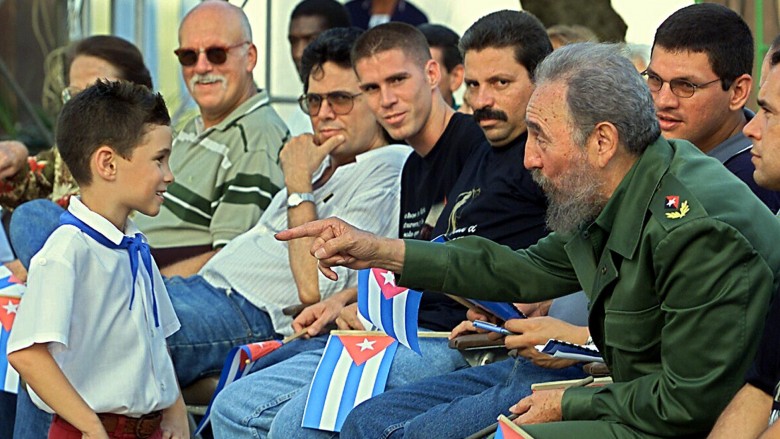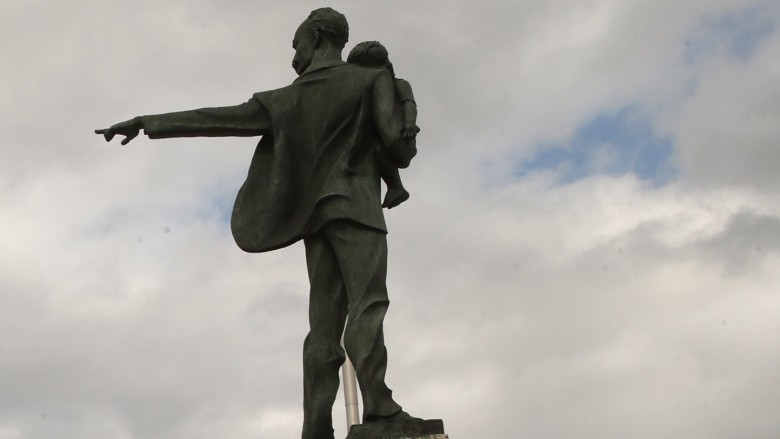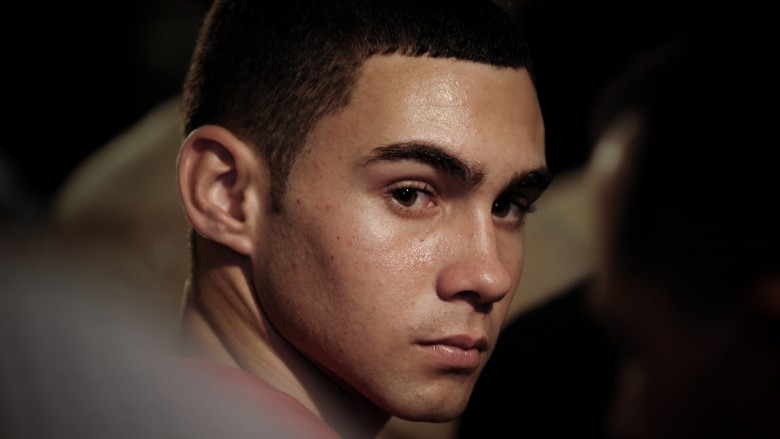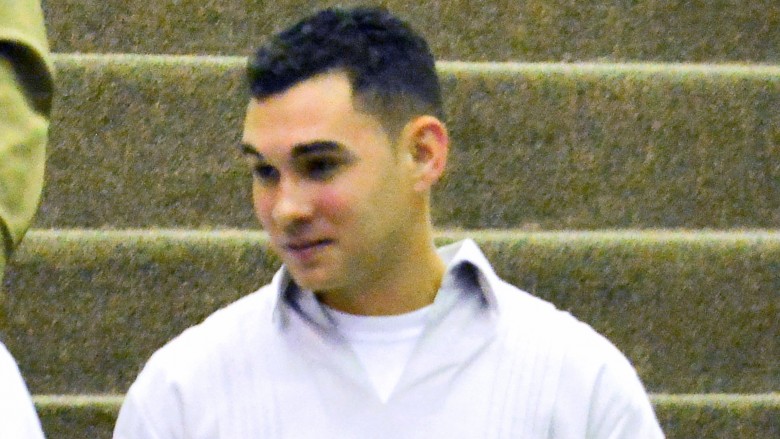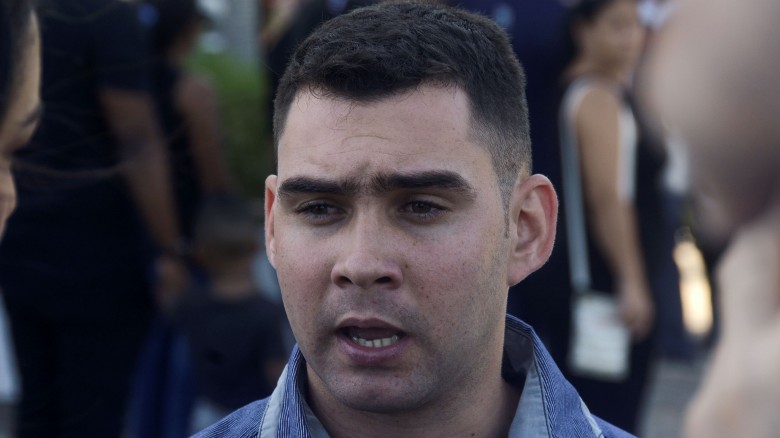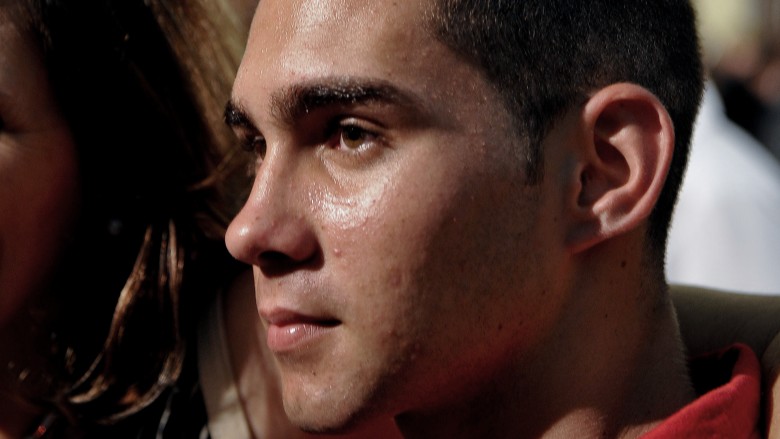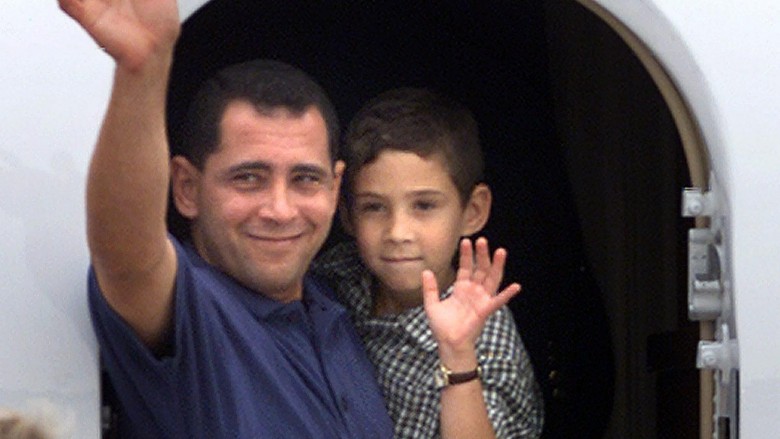Whatever Happened To Elian Gonzalez?
One of the biggest stories to hit the news media in 1999 was the bitter uproar surrounding the fate of 5-year-old Elian Gonzalez. After escaping Cuba in a harrowing journey, in which his mother and ten others died, young Elian was found alone near Fort Lauderdale, floating on an inner tube, by two fishermen on Thanksgiving Day.
As Biography describes (not to mention countless other news sources), his great-uncles and cousin who lived in Miami insisted that, having survived the treacherous journey, Elian deserved to stay in the U.S., while his father (who remained in Cuba and claimed custody rights), the Cuban leader Fidel Castro, and members of the U.S. government argued that he should absolutely return to Cuba. In a portent of things to come, months of heated debate followed about under what conditions family members could claim the right for a child to remain in the U.S.
It's hard to believe that Elian is now in his early 20s. Not surprisingly, quite a bit has happened since he appeared across front pages and became the face of a global debate all those years ago.
He returned to Cuba
After months of demonstrations and nonstop public scrutiny, Elian's time in the U.S. came to a definitive end on April 22, 2000, when, as his page on Biography details, "federal agents, armed with submachine guns, forced their way into the Miami home of [great-uncle] Lazáro González and seized a terrified Elián."
Along with generating even more press coverage, Gonzelez's seizure (ordered by Attorney General Janet Reno with the backing of then-president Bill Clinton) resulted in a heart-stopping, iconic image (via MSNBC) that appeared around the world. Biography continues: "Alan Diaz, a photographer for the Associated Press, captured a dramatic image of the moment in a photograph that won the Pulitzer Prize for Breaking News Photography."
Gonzalez finally returned to Cuba in June 2000, per CBS News, "with his father, stepmother and baby brother, who had travelled to the United States in their efforts to reunite the family."
He became close with Fidel Castro
After Elian's return to Cuba, the then-president of the country took a very public interest in the young boy's plight and what it meant for Cuban-U.S. relations. In fact, as CNN reported in 2015, "At [Gonzalez's] seventh birthday party, the guest of honor was Cuban leader Fidel Castro. Images of Elian and Castro celebrating were first shown on the island's state-run TV and then transmitted around the world, to a public still fascinated by the case of the rafter-boy."
In another 2015 article, The New York Times noted that literature played a role in this friendship; the Cuban leader also "sent [Gonzalez] books from time to time." And, according to USA Today, "Gonzalez said he considered it an 'extraordinary honor' when Castro attended his sixth-grade graduation."
A statue was built in his honor
In addition to his close relationship with Cuba's leader, Gonzalez was honored in his native country when a statue depicting a man holding a child went up. As Bustle reported in 2015, "a statue of his 6-year-old self is even erected in his honor in Havana. However, he's not sure if the statue is actually fashioned after him and his father, though many in Cuba say it is."
A modest Gonzalez believes the likeness is circumstantial, noting in an interview with ABC News (via Bustle) that "I feel proud because I feel it is a statue that is evidence to everything that happened at that moment. It's a symbol of loyalty of what happened...it represents a father that is trying to protect his son."
He went to school and graduated from college
Despite his undeniably unique childhood experiences, Gonzalez was able to join his peers in school and at college. In 2016, per the Associated Press (via PBS), "22-year-old Gonzalez received his diploma in industrial engineering from the University of Matanzas."
According to a Cuban government website (via PBS/Associated Press), Gonzalez also "said he read a letter from his class to former leader Fidel Castro at the graduation ceremony."
He got engaged
Along with his success at school, Gonzalez managed to find happiness in his personal life; in 2016, CBS News shared that he was engaged.
According to a 2015 report from ABC News, his fiancé is "Ilianet Escano, who he met eight years ago and started dating in high school. He proposed on February 14 during a surprise party he threw for her."
He mourned Castro
When Fidel Castro passed away in November 2016, Gonzalez was once again thrust into the international spotlight as he was asked to comment on the leader's life and legacy. In an interview with USA Today, he said about Castro, "He is a father to me and, like my father, I wanted to show him everything I achieved...There are still things I wanted to show him, to make him feel proud."
He added, according to the AP (via The Huffington Post), "Fidel was a friend who at a difficult moment was with my family, with my father, and made it possible for me to return to my father, to return to Cuba."
He's been leading a mostly quiet life
Overall, despite his close relationship with Fidel Castro and sporadic reports on his life, Gonzalez has flown under the radar for the majority of his adult life, preferring to keep his private life and family out of the public eye.
According to CBS News, upon turning 20, Gonzalez told the Cuban state-run web site Cubadebate, "I'm a little shy, so when I stand up somewhere and know that the whole world is looking at me and I'm perhaps the center of attention...it's pretty tough."
His life will be a documentary
Recent political events seem to have recharged public interest in Gonzalez's story, and according to Deadline, a documentary featuring interviews and archival footage entitled Elian is slated for release in the U.S. in 2017. From Fine Point films, Deadline says the film is "a story about the challenges of reconciliation among members of a once-close family, reflecting the divisions of the Cuban people and the complicated relations between Cuba and the United States."
Given all that's happening in the world today surrounding immigration, it's not surprising that Gonzalez's story continues to resonate. It certainly offers a great deal to think about.


